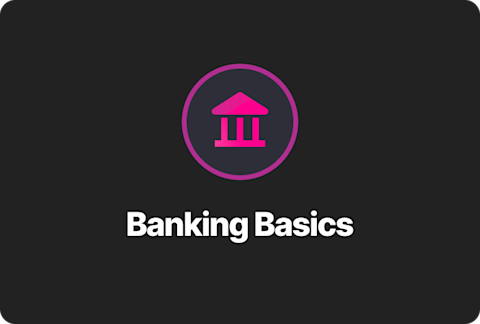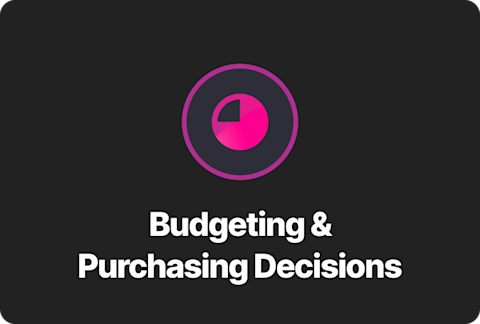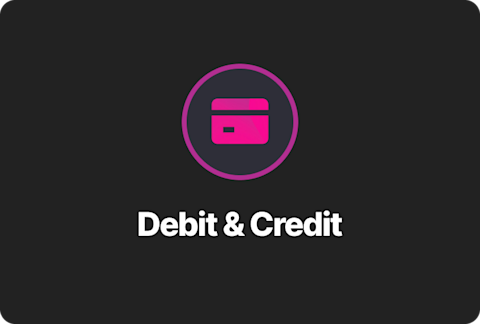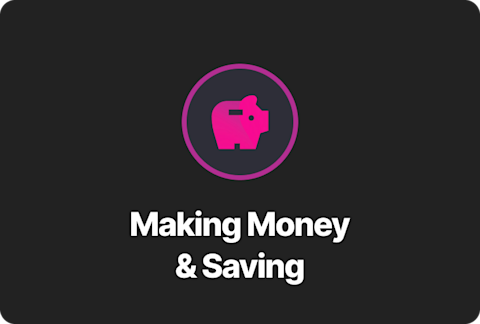Real Talk: Part 4, featuring Taylor Price
Breaking down money basics & answering all your #BurningMoneyQuestions

Welcome to our favorite month of the year! Can anyone guess why? It’s Financial Literacy Month and there’s nothing we love more than helping teens up their Money IQs. To celebrate, we’re bringing you a special, weekly edition of Real Talk!
First up is Taylor Price (you may know her as @pricesslesstay), the 20-year-old finfluencer who’s helping Gen Z up their money smarts. She dishes on everything from her biggest money mistake to budgeting like a #boss and why she thinks more teens should use Step.
What’s the biggest mistake you’ve made with money and what did you learn from the experience? 🙈
Overutilizing my credit card. When I was younger, I wanted to have the perfect credit score so I paid for everything with my credit card, thinking it would help boost my score. What I didn’t know is that even if you pay your full balance every month, spending more than 30% of your credit limit can actually hurt your score. For instance, if your credit limit is $1,000, you’ll want to keep your monthly spending under $300. Now that I know this, I make sure to use a mix of credit and debit to keep my utilization below 30%.
At what age did you start budgeting and why do you think it’s such an important skill to have? 💰
I began budgeting in my teens. I had just started my own photo booth business (I love capturing special moments through photos), and needed to figure out how much to charge so I could cover my operating costs and still make a small profit. As the business grew –– we were doing bar mitzvahs, quinceañeras and sweet 16s –– so did my costs, and budgeting became even more important!
From this experience, I learned that budgeting is a foundational skill that helps ensure your financial security (I call this the seed) so you can grow your wealth (i.e., your money tree) and live life on your own terms. For me, this means being able to afford a night out with friends and invest in my financial literacy business - TAP Intuit.
What’s one piece of advice you’d like to share with teens that are just starting out on their financial journeys? 🤔
Focus on growing your money tree. I came up with this concept because people (namely my parents) were always reminding me that money doesn’t grow on trees.
Here's how it grows: First, you have your seed of budgeting which needs to be nurtured so it becomes a strong and thriving money tree. Next, your roots (i.e., an emergency fund and savings account) will start to grow deeper into the ground, keeping your tree stable in the event of a financial storm - like losing your job or getting into an accident. Now, it’s time to water your budding money tree by building a great credit score. Once you have these foundational elements in place, your money tree will really begin to blossom and you can start growing new branches through investments and more.
Let’s talk about Step. Why did you decide to partner with the company and what are some of your favorite features of the Step App? 💗💙💛
I decided to partner with Step because they’re making banking more accessible to the next generation. When I was younger, tools like Step didn’t exist. You had to ask your parents to take you to the bank and go through this long, arduous process. Step has really simplified things, allowing you to open an account in less than two minutes and giving teens more control over their financial futures.
My favorite Step feature is being able to build positive credit as a teen without the possibility of overspending (one of my biggest money mistakes!). It gives teens way more advantages in life - from helping them secure their dream job or apartment to lowering phone bills.
What’s one burning money question you have? 🔥
What’s the right amount of money to have in your emergency fund? I’ve seen the pandemic turn people’s finances upside down, so I’m a little nervous that the money I’ve saved may not be enough. Taylor’s question is one that many people have been asking themselves recently.
Typically, you want to set aside enough money to cover at least three months worth of expenses. Once you’ve reached that amount, if you have things like student loan debt weighing you down, you should focus on eliminating those costly expenses. However, if you’re debt-free, we recommend you continue adding to your emergency fund until you’ve saved enough to cover six months worth of expenses.
At this point, you should have a really solid emergency fund so consider shifting your focus to investing which yields higher dividends and will help you add even more branches to your money tree! Want to learn more? Check out our guide to banking in your teens.
Next week, we’ll be sitting down with Step Founder & CEO, CJ MacDonald, to discuss his own financial journey, why he built Step and how it’s helping teens get #FinLit. In the meantime, make sure to follow Step on Instagram and TikTok so you don’t miss out on any tips for getting into that #StepMoneyMindset!








